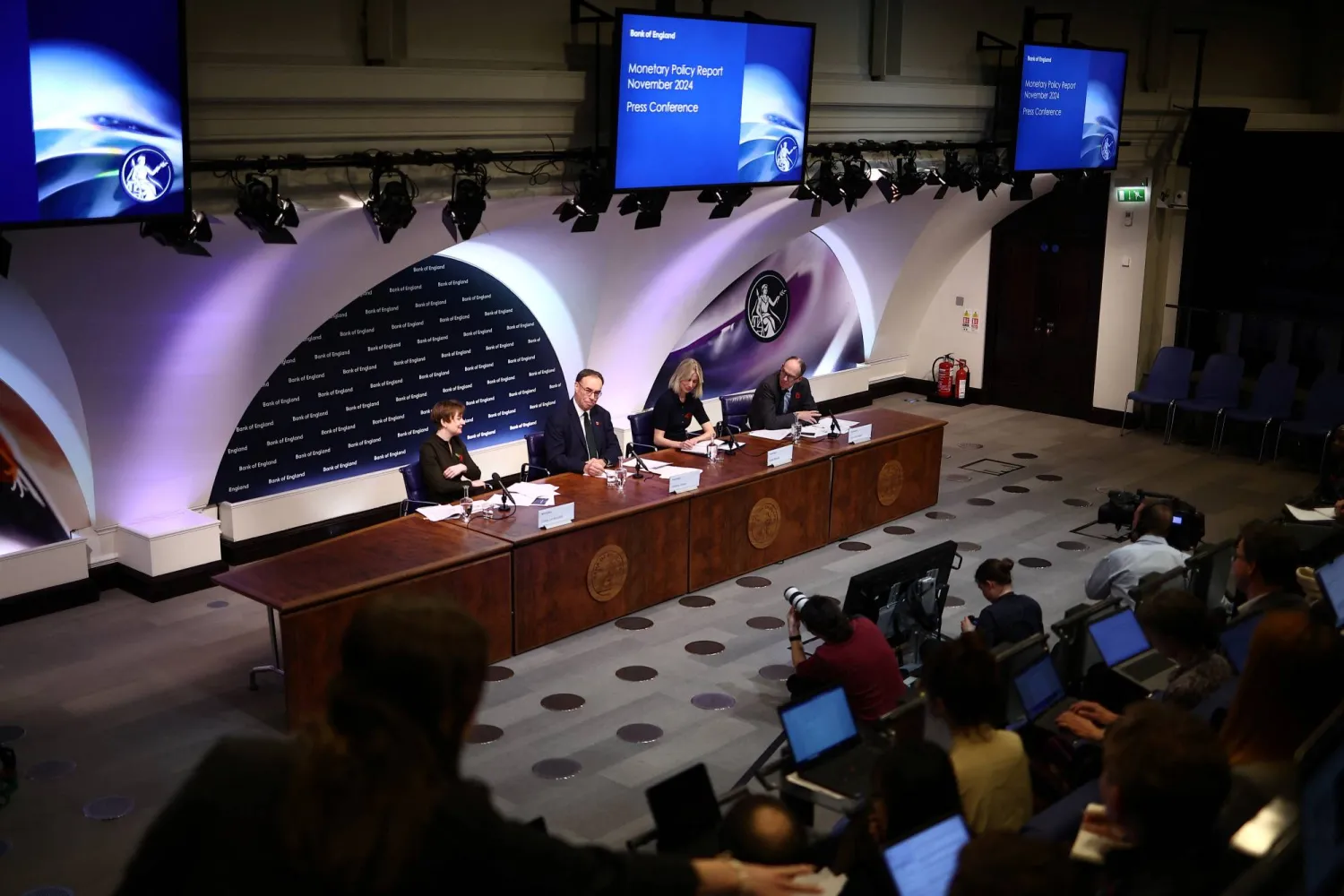The Bank of England cut its main interest rate by a quarter of a percentage point on Thursday after inflation across the UK fell below its target rate of 2%.
The bank said its rate-setting panel lowered the benchmark rate to 4.75% — its second cut in three months — though its governor Andrew Bailey cautioned that interest rates would not be falling too fast over coming months.
“We need to make sure inflation stays close to target, so we can’t cut interest rates too quickly or by too much,” he said. “But if the economy evolves as we expect it’s likely that interest rates will continue to fall gradually from here.”
In the year to September, UK inflation stood at 1.7%, its lowest level since April 2021 and below the central bank’s target rate of 2%, The Associated Press reported.
Central banks worldwide dramatically increased borrowing costs from near zero during the coronavirus pandemic when prices started to shoot up, first as a result of supply chain issues built up and then because of Russia’s full-scale invasion of Ukraine which pushed up energy costs.
As inflation rates have recently fallen from multi-decade highs, the central banks have started cutting interest rates.
Economists have warned that worries about the future path of prices following last week's tax-raising budget from the new Labour government and the economic impact of US President-elect Donald Trump may limit the number of cuts next year.
The decision comes a week after Treasury chief Rachel Reeves announced around 70 billion pounds ($90 billion) of extra spending, funded through increased business taxes and borrowing. Economists think that the splurge, coupled with the prospect of businesses cushioning the tax hikes by raising prices, could lead to higher inflation next year.
The rate decision also comes a day after Trump was declared the winner of the US presidential election. He has indicated that he will cut taxes and introduce tariffs on certain imported goods when he returns to the White House in January. Both policies have the potential to be inflationary both in the US and globally, thereby prompting Bank of England policymakers to keep interest rates higher than initially planned.
Bank of England Cuts Main Interest Rate by a Quarter-point to 4.75%

Bank of England Deputy Governor for Monetary Policy Clare Lombardelli, Bank of England Governor Andrew Bailey, The Bank of England's Head of Media and Stakeholder Engagement Katie Martin and Deputy Governor, Markets and Banking, Dave Ramsden hold the central bank's Monetary Policy Report press conference at the Bank of England, in London, on November 7, 2024. HENRY NICHOLLS/Pool via REUTERS

Bank of England Cuts Main Interest Rate by a Quarter-point to 4.75%

Bank of England Deputy Governor for Monetary Policy Clare Lombardelli, Bank of England Governor Andrew Bailey, The Bank of England's Head of Media and Stakeholder Engagement Katie Martin and Deputy Governor, Markets and Banking, Dave Ramsden hold the central bank's Monetary Policy Report press conference at the Bank of England, in London, on November 7, 2024. HENRY NICHOLLS/Pool via REUTERS
لم تشترك بعد
انشئ حساباً خاصاً بك لتحصل على أخبار مخصصة لك ولتتمتع بخاصية حفظ المقالات وتتلقى نشراتنا البريدية المتنوعة







